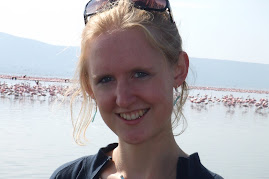so in three days 8 till 5 i was able to both have fun and cram my brain with new skills, the firemans lift practical being one of my favorites! we also did emergency scene management: for example there is a scene where a car has collided with a truck leaving 5 casualties, one is unconscious, one is running around madly, another is burnt as the car has caught on fire, and the remaining two are screaming with limbs in awkward positions. what do you do? in these practicals we were taught the triage of cases, how to use bystanders, the 8 steps to first aid etc so that in real life we would know what to do. it was very fun and challenging.
then this yesterday it came into practice as we had the grassroots first aid competition hosted here in Nakuru next to our branch in a primary school. there was a seniors section and an out of school youths section each with around 10 teams from schools, colleges and businesses in the Nakuru area. i formed an impromptu team composing of (Kim, Charles and I as each team was to have three) that morning after my original team disbanded and we managed to come third place! pretty pleased with ourselves considering the fact that we hadn't practiced as a team prior to that day! imagine how good we could have been if we had!
the day was nerve wracking, we had to hand over our phones and stay in isolation until our teams turn came, then after we were aloud to stay and watch how the remaining teams reacted. the scene was a motorbike and a bicycle collision, there was an unconscious casualty (of course that is the one you are meant to address first), a casualty with a severe cut to the head and a third with suspected neck injury and an obvious leg fracture. we had seven minutes in which you are supposed to
- call for help (introduce yourselves to the bystanders and call the emergency services correctly)
- assess the scene for danger (you must not become the next casualty! ie get bystanders to stop traffic, move casualties away if there is a fire, move dangerous objects, contol the crowd)
- assess the casualties (ABCs of life, assess the casualties in order of urgency ie dont go to the one that screams loudest first!)
- arrest bleeding (correct use of bandages/improvisation)
- support head and neck
- secondary assessment (whole body, now also move to burns and breakages)
- take history (AMPLES: allergies, medication, past experience in hospital, last meal, events leading up to scene, signs and signals)
- transportation (correct method)
it was hard work! first aid is something that i am defiantly more confident in and want to keep improving my skills in now, leading up to the day we went to some schools giving refresher classes, something id be interested in offering my services in the future with, as what better way to keep in practice than to teach!
so fake blood and scenarios out of the way now its back out int the world to get doing the real thing!

No comments:
Post a Comment